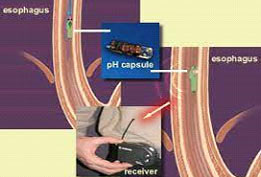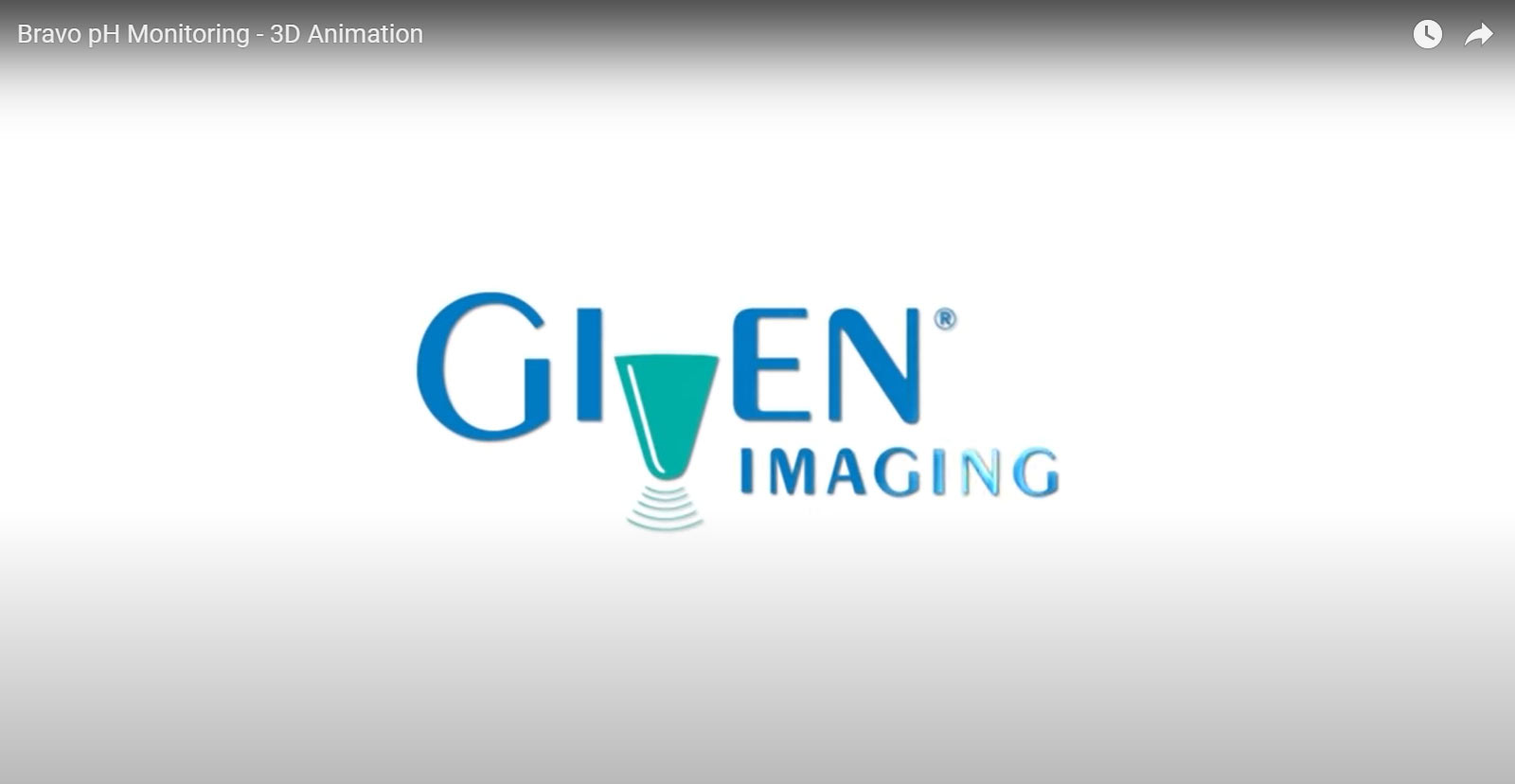Bravo Esophageal pH testing
Esophageal pH testing allows your doctor to determine if you are continuing to have acid reflux, and if this may be causing your symptoms (heartburn, cough, chest pain, hoarseness of voice).
Procedure
On the day of the procedure, the Endoscopy Nurse will place an IV into your hand or arm. When it is time for your procedure, you will be brought via stretcher into the endoscopy room. You will be lying on your left side for the procedure. You will be given intravenous sedatives prior to starting your endoscopy, and so most patients are asleep during the test. The nurse will place a plastic shield (‘bite block’) in your mouth to protect your teeth. Most patients do not experience any pain during or after the procedure. In addition, most patients do not recall undergoing the procedure afterward. The endoscopy takes only about 10 minutes to perform.
Your doctor will carefully and safely guide a thin, flexible, fiberoptic tube equipped with a light and camera, into your esophagus, then into the stomach, and all the way into the duodenum (first part of the small intestine). During the procedure, the doctor may take biopsies (small tissue samples) to obtain more information. Every biopsy is always sent to the Pathologist for examination. If a stricture (abnormal narrowing) is found during the test, your doctor may choose to dilate (stretch) the stricture to help your symptoms. In addition, if the doctor finds something bleeding during the test, he will likely cauterize the bleeding lesion in order to stop it. After the procedure, your doctor will speak to you and let you know the results of the exam.
Possible Complications
Endoscopy is a very safe procedure. The vast majority of the time, there are no problems during the test. That being said, any procedure that a doctor performs (no matter how safe) can possibly result in unforeseen complications. The possible complications (again, all are rare) of this procedure include: bleeding, perforation (puncturing the GI tract), and adverse reaction to the IV sedation. In addition, although this procedure is the most accurate way of evaluating the upper GI tract, the doctor is not guaranteed to always find every abnormality during the test.
If you have any questions regarding the upper endoscopy, please call us at 740-356-6828.





